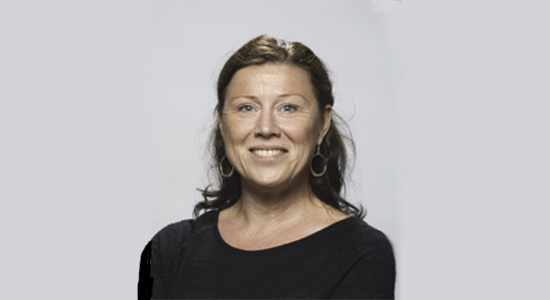Kissow Group - Gut Hormone Biology
Our main purpose of the group is to establish knowledge leading the way to improved treatment of patients suffering from intestinal diseases such as inflammatory bowel diseases or chemotherapy induced mucositis.

Our main focus in the group is to elucidate how the endogenous gut hormones impacts intestinal healing and recovery. We have a special interest in the influence of dietary fibers on the luminal metabolomics and gut hormone secretion.
We mainly use animals (mice and rats) in experimental models of intestinal diseases. We use GMO mice; we have our own breed of GLP-1 and GLP-2 receptor knock out mice.
We are setting up a model of total parental feeding in a rat. The rats will be fitted with a catheter in the carotid artery and jugular vein; connected to a tether and a swivel, enabling the rats to be unrestrained during infusion and blood sampling.
Laboratory techniques are:
- ELISA
- RIA
- Histology
- IHC
- Morphology
Chemotherapy-induced mucositis is a frequent complication of anticancer treatment. The disease threatens the effectiveness of therapy because it often leads to dose reduction and impairs patients’ quality of life. Patients receiving high dose chemotherapy before hematopoietic stem cell transplantation (HSCT) develop severe toxicities, diarrhea, nausea and insufficient food intake. Further to this, damage to the intestinal epithelium increase the risk of translocation of bacteria, resulting in systemic inflammation in variable degrees, which again increases the body’s energy needs. However, patients are not equally susceptible to the development of severe side-effects, still no method exist to predict who rae in highest risk. Extensive knowledge of the pathophysiological mechanism behind chemotherapy induced intestinal damage could show the way to personalized prophylactic treatment, which would have a great potential for improvement of outcome in this selected patient group.
We think that gut hormones are important for the recovery of the intestinal mucosa upon injury, such as chemotherapy induced mucositis. We have shown that both GLP-1 and GLP-2 treatment were able to reduce the damages to the intestine after injections of chemotherapy in mice and rats. When given in combination the effect was additive. We know that patients with obesity or diabetes have an impaired secretion of both GLP-1 and GLP-2, and that patients undergoing HSCT have an increased fasting level of GLP-1 in plasma. The hormones are secreted from endocrine cells in the epithelial lining. A plethora of both nutrient components, bile acids and metabolites from bacterial fermentation has proven to stimulate secretion of several gut hormones, showing us that luminal stimulation after oral food intake is crucial for the secretion. Poor nutritional status are associated with poor outcome, still nutritional therapy has major challenges. Due to the reduced enteral resorptive capacity, tube feeding is rarely the solution and most patients need total parenteral nutrition (TPN). TPN restores the nutritional status, but on the other hand, the treatment might have severe effects on the intestinal mucosa, due to the impaired gut hormone secretion, again exaggerating the toxicities from the chemotherapy.
Our main target in the group is to elucidate the importance of the endogenous hormones in intestinal healing and recovery. We have a special interest in how dietary fibers impacts the luminal metabolomics and the metabolites ability to induce hormone secretion and intestinal recovery. We are also interested in the therapeutic potential of the hormones; we are conducting a clinical trial in patients undergoing HSCT and high-dose chemotherapy in a collaboration with oncologists from Rigshospitalet.
- Klaus Müller, Professor in paediatric oncology at the Department of Paediatrics and Adolescent Medicine at The Juliane Marie Centre, Rigshospitalet.
- Palle Bekker Jeppesen, Professor and Head of Department of Intestinal Failure and Liver Diseases, Rigshospitalet
- Filip K. Knop, Professor of endocrinology and Director of Center for Clinical Metabolic Research, Gentofte Hospital, University of Copenhagen
The Kissow Group has received grants from a number of private and public foundations.
- Danish Council for Independent Research Medical Sciences (FSS)
Hannelouise Kissow is the grant holder.
Case number: DFF 4004-00620B - The Danish Cancer Society - Valdbjørns Fond
- Aase og Ejnar Danielsen Foundation
- Fonden til Lægevidenskabens Fremme
- Det Lægevidenskabelige Fakultets Fond
- Oda og Hans Svenningsens Fond
- Krista og Viggo Petersen's Fond
- Else og Mogens Wedell-Wedelsborg Fond
- Dagmar Marshall fond
- Fabrikant Einer Willumsen Mindelegat
- Københavns Universitets Fond for Kræftforskning
- BRIDGE program
Group Leader
Hannelouise Kissow
Associate Professor
Phone +45 20 27 66 50
Email: kissow@sund.ku.dk
ORCID: 0000-0001-9351-8885
Group/project members
| Name | Title | Phone | |
|---|---|---|---|
| Buttar, Sana Naseer | Guest Researcher | ||
| Kissow, Hannelouise | Associate Professor | +4535326651 | |
| Sørum, Maria Ebbesen | Postdoc |

